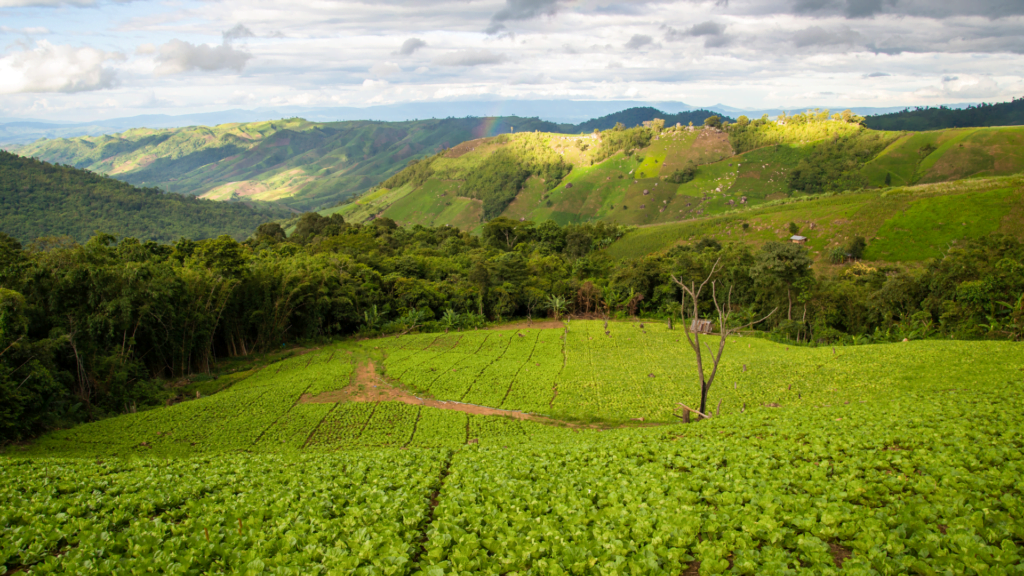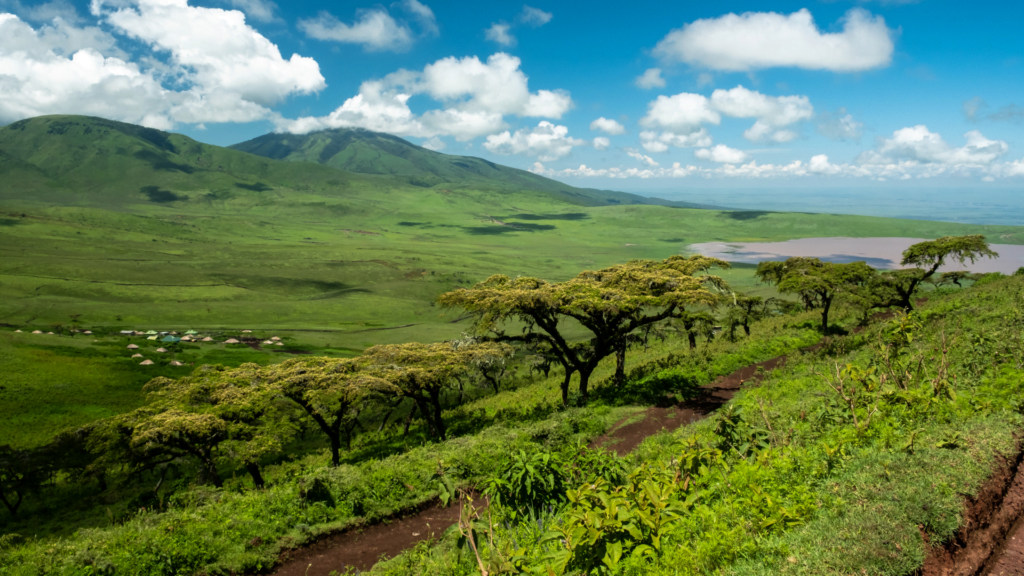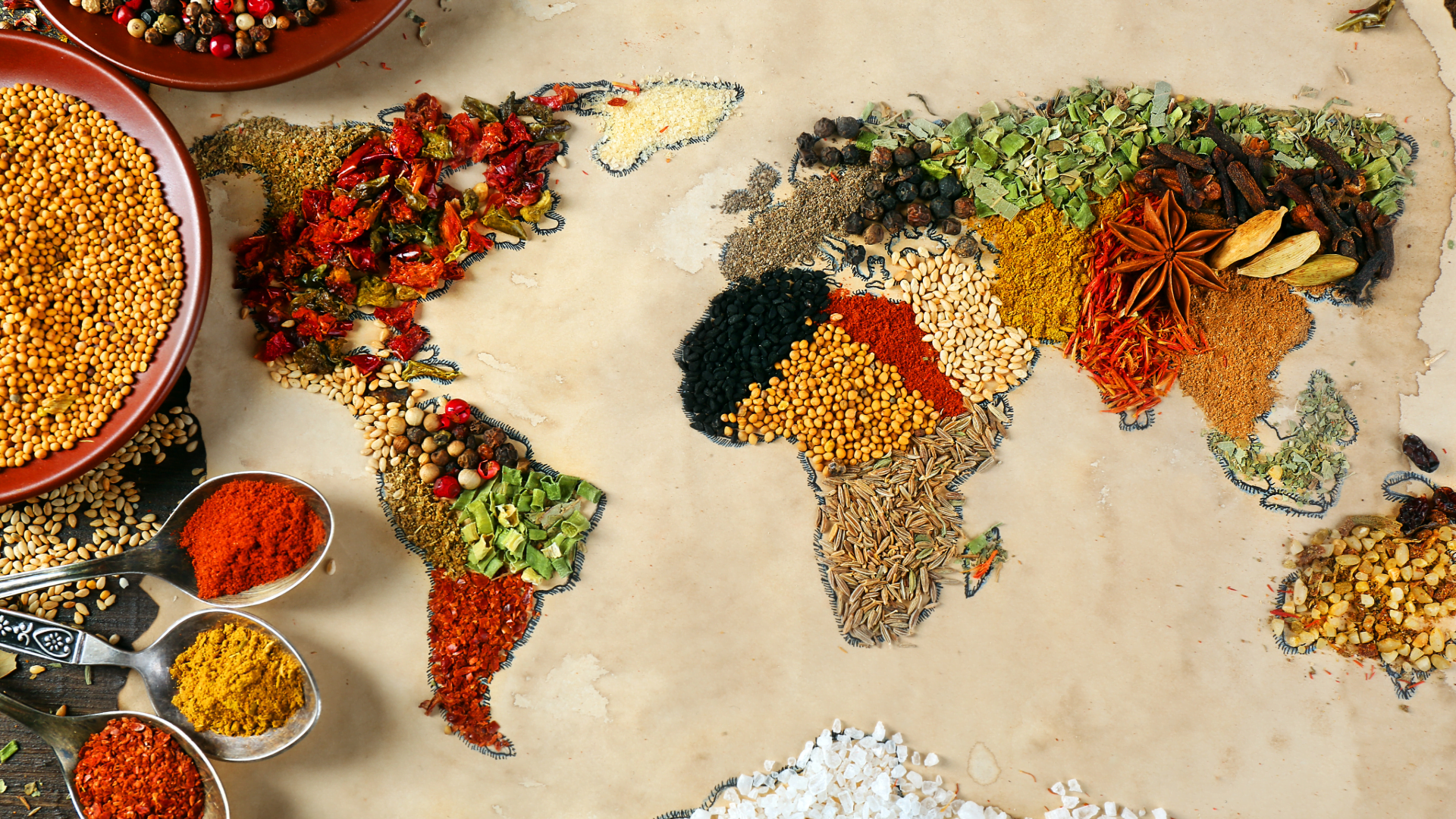
Africa, as a diverse continent with 54 countries. It exhibits a range of economic activities that contribute to its growth and development. Africa boasts abundant natural resources, a growing population, and a rich cultural heritage that form the basis of its economy. Here, we will explore the major sources of economy of Africa, includes agriculture, natural resources, manufacturing, services, and emerging sectors, highlighting key trends, challenges, and opportunities for sustainable development. The major source of Economy of Africa are agriculture, natural resources, manufacturing, services, and emerging sectors that contribute to its growth and development.
Agriculture as a source of Economy of Africa:

Agriculture remains a cornerstone of Africa’s economy. Its employing a significant portion of the population and contributing to food security, rural livelihoods, and economic growth. The continent’s diverse agro-ecological zones support a wide range of crops, livestock, and fisheries, providing sustenance for local communities and also export opportunities for global markets. Hence it consider as the major source of Economy of Africa.
1. Food Production:
Africa produces a variety of staple crops such as maize, rice, wheat, cassava, and sorghum, which form the basis of the diet for millions of people. Smallholder farmers dominate agriculture, practicing subsistence farming or commercial agriculture on small plots of land.
2. Cash Crops:

Africa is a major producer of cash crops such as cocoa, coffee, tea, cotton, and palm oil, which are exported to international markets. Cash crop cultivation provides income for farmers, foreign exchange earnings for governments, and employment opportunities along the value chain.
3. Livestock and Fisheries:


Livestock farming is an important source of protein, income, and employment in many African countries. Fisheries contribute to food security and nutrition, particularly in coastal communities. It also provides a vital source of animal protein and livelihoods for fishermen. Livestock farming includes cattle, sheep, goats, and poultry
4. Challenges:
Despite its significance, African agriculture faces challenges such as low productivity, land degradation, water scarcity, climate change, and limited access to markets, finance, and technology. Addressing these challenges requires investments in agricultural infrastructure, research and extension services, market access, and sustainable land management practices.
Natural Resources as a source of Economy of Africa:

Africa is endowed with abundant natural resources, including minerals, oil, gas, forests, and biodiversity, which form the backbone of its economy. The extraction and export of natural resources contribute to government revenues, foreign exchange earnings, and economic development, but also pose challenges such as environmental degradation, resource depletion, and governance issues.
1. Minerals and Mining:


Africa is rich in minerals such as gold, diamonds, copper, iron ore, bauxite, and platinum, which are essential for industrial processes, infrastructure development, and consumer goods. Mining activities generate revenue, employment, and investment opportunities, but also raise concerns about environmental impact, community displacement, and social conflicts.
2. Oil and Gas:
Africa is a major producer of oil and gas. With significant reserves located in countries such as Nigeria, Angola, Algeria, and Libya. The petroleum industry contributes to government revenues, foreign investment, and economic growth. But is vulnerable to price volatility, geopolitical risks, and environmental pollution.
3. Forestry and Biodiversity:


Africa’s forests and biodiversity provide essential ecosystem services such as carbon sequestration, water regulation, and habitat for wildlife. Forestry activities, including logging and timber production, contribute to economic development but also pose threats to biodiversity, deforestation, and land degradation.
4. Renewable Energy:
Africa has vast renewable energy potential, including solar, wind, hydroelectric, and geothermal resources, which offer opportunities for sustainable energy development, climate mitigation, and electrification of rural areas. Investing in renewable energy infrastructure and technologies can reduce reliance on fossil fuels, enhance energy access, and promote green growth.
Manufacturing as a source of Economy of Africa:
Manufacturing plays a growing role in Africa’s economy, contributing to industrialization, job creation, and value addition to raw materials. The continent’s youthful population, urbanization, and rising middle class present opportunities for expanding manufacturing industries such as agro-processing, textiles, automotive, and electronics.
1. Agro-Processing:
Agro-processing industries add value to agricultural products such as fruits, vegetables, grains, and dairy, transforming them into processed foods, beverages, and consumer goods. Agro-industrial parks, food processing hubs, and value chain development initiatives promote agribusiness entrepreneurship, rural development, and export diversification.
2. Textiles and Apparel:

Africa has a growing textiles and apparel industry, benefiting from competitive labor costs, preferential trade agreements, and proximity to major markets. Textile factories produce garments, fabrics, and apparel for domestic consumption and export to international markets, creating jobs and generating foreign exchange earnings.
3. Automotive and Machinery:

Africa’s automotive and machinery industry is expanding, driven by increasing demand for vehicles, construction equipment, and industrial machinery. Domestic assembly plants, joint ventures with multinational manufacturers, and government incentives promote local manufacturing, technology transfer, and industrial development.
4. Challenges:
Manufacturing in Africa faces challenges such as inadequate infrastructure, limited access to finance, skills shortages, and competition from imported goods. Addressing these challenges requires investments in infrastructure, skills development, technology adoption, and supportive policies to promote industrialization and economic diversification.
Services as a source of Economy of Africa:

The services sector is a significant contributor of Africa’s economy. Encompassing a wide range of activities such as trade, finance, telecommunications, tourism, and information technology. Services industries provide employment, generate revenue, and contribute to economic growth and social development across the continent.
1. Trade and Commerce:
It services facilitate the exchange of goods and services within domestic and international markets, supporting economic activity, investment, and entrepreneurship. Trade logistics, transportation, warehousing, and distribution services are critical for connecting producers and consumers across supply chains.
2. Finance and Banking:
The finance and banking sector provides essential financial services such as banking, insurance, investment, and capital markets, supporting business operations, infrastructure development, and household savings. Mobile banking, digital payments, and fintech innovations are expanding financial inclusion and access to credit for underserved populations.
3. Telecommunications and Information Technology:
Telecommunications and information technology services drive digital connectivity, innovation, and economic development in Africa. Mobile phone penetration, internet access, and e-commerce platforms are transforming communication, commerce, and social interaction, creating opportunities for entrepreneurship and economic empowerment.
4. Tourism and Hospitality:

Africa’s diverse landscapes, wildlife, and cultural heritage attract millions of tourists each year, contributing to job creation, foreign exchange earnings, and infrastructure development. Tourism and hospitality services include accommodation, transportation, tour operations, and leisure activities, supporting local communities and promoting sustainable tourism practices.
Emerging Sectors as a source of Economy of Africa:

Africa’s economy is witnessing the emergence of new sectors and industries driven by innovation, entrepreneurship, and technology adoption. These emerging sectors offer opportunities for economic diversification, job creation, and inclusive growth, contributing to Africa’s transformation and integration into the global economy.
1. Renewable Energy:
The renewable energy sector is experiencing rapid growth in Africa, driven by declining costs, favorable policies, and growing demand for clean energy solutions. Solar, wind, hydroelectric, and geothermal projects provide opportunities for investment, job creation, and sustainable development, addressing energy access, climate change, and environmental challenges.
2. Digital Economy:
Africa’s digital economy is expanding, fueled by mobile technology, internet connectivity, and digital innovation. E-commerce platforms, mobile banking, digital payments, and fintech solutions are transforming business models, financial services, and consumer behavior, unlocking economic opportunities and empowering entrepreneurs across the continent
.
3. Creative Industries:
Africa’s creative industries are gaining recognition globally for their cultural richness, diversity, and economic potential. Creative entrepreneurs, artists, and cultural practitioners contribute to job creation, tourism promotion, and brand Africa, fostering cultural exchange and creative expression. Creative industries includes arts, music, film, fashion, and design.
4. Green Economy:
The green economy encompasses sectors such as renewable energy, sustainable agriculture, eco-tourism, and environmental conservation, promoting economic growth while preserving natural resources and mitigating climate change. Green investments, green jobs, and green technologies drive sustainable development, resilience, and inclusive prosperity in Africa.
Conclusion:
Africa’s economy is diverse and dynamic, characterized by agriculture, natural resources, manufacturing, services, and emerging sectors that contribute to its growth and development. Harnessing the continent’s abundant resources, human capital, and entrepreneurial spirit is essential for addressing challenges such as poverty, inequality, and environmental degradation while unlocking opportunities for sustainable prosperity and inclusive growth. By investing in infrastructure, education, innovation, and governance, Africa can realize its potential and position itself as a vibrant, competitive, and resilient player in the global economy.









